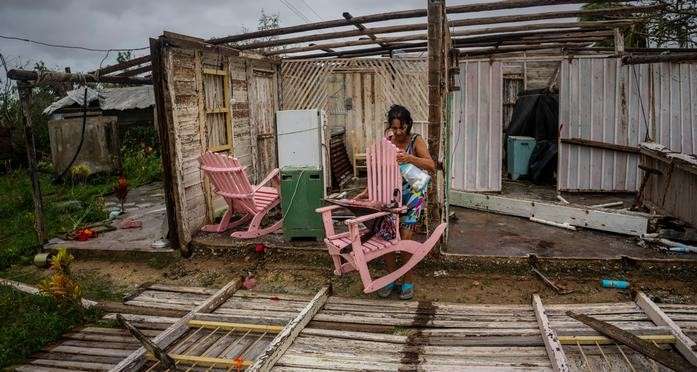In Mexico, eight out of 10 inhabitants live in cities; however, cities have grown in a disorderly way, in an unsustainable way and with little resilience capacity, which generates low competitiveness and a segregation that marks unequal conditions very deep, which in turn means that the country is doomed to underdevelopment.
According to José Alfonso Iracheta Carroll, director of the National Institute of Sustainable Land (Insus), the country has the great challenge of correcting this situation, but action should not focus on the federal government, since states and, mainly, municipalities, should be involved in a coordination to generate an orderly growth of the cities.
“The cities They have grown in a very disorderly way, not at all sustainable, with very little resilience, with low competitiveness, and this problem is going to continue to worsen,” Iracheta Carroll explained in an interview.
For the official, urban disorder is detrimental to the country’s capacity to develop, because if the economic level of the peripheries is compared to the highly marginalized areas, there is a notorious socioeconomic segregation.
“In the end, this socioeconomic segregation is detrimental to the capacity of the entire country to develop, since 80% of Mexicans live in cities and if we have such profound differences, and above all a path of little sustainability and urban disorder that continues to advance, then we are doomed to underdevelopment,” said the official.
Has progress been made?
Questioned in this regard about the work of this administration on the issue of the orderly growth of citiesIracheta Carroll indicated that the first big step was to create the National Land Policy in a context where it is estimated that there are 7 million properties in conditions of irregularity.
“The Insus continues to advance in the regularization of land tenuresince there is a significant backlog that there is talk of up to 7 million lots that are in conditions of irregularity“, commented the official.
In this context, the head of the Insus indicated that during this government around 50,000 land regularization actions have been carried out; however, despite this progress, a greater involvement of the municipalities is necessary to generate policies for sustainable land use and orderly urban growth.
“We have to go towards a rethinking of urban policy at the local level, to give it a land-based approach, that is to say that any policy that is proposed takes as a reference the problem of the land, the instruments of land management and from there move forward in urban policy of all kinds, which can be the policy of housing, mobility, public space and land use planning,” said Iracheta Carroll.
The head of the Insus emphasized that the most relevant focus has to be land management, that is, that the conditions exist for the occupation of the territory, that is, either through urban growth, redensification or reconversion of spaces.
“When we start from a base, we are not guaranteeing, but we are in the right direction to care for the environment.”
Affectation to the population
The official listed the greatest effects on the population due to a disorderly growth of cities and a lack of legal certainty regarding ownership:
- Exposure to theft, extortion and other similar phenomena. “By not being an owner with all of the law, that is, not having a title to the property, vivales can come to remove the land.”
- financial implications. Housing is the main asset of many families, which is used to obtain financing and if you are in an irregular settlement, people are left out of the formal credit market.
- Social impact. Irregular settlements tend to have poor quality basic services, as well as a poor urban image, which also prevents the state from carrying out investments because they are informal regions.
- psychological factor. “When a family receives its property title, it changes the perspective it has regarding its role or the role it plays in society. When they are in conditions of marginalization, they do not assume themselves as citizens in the broadest sense of the word.”
Questioned about the number of urban settlements that exist in the country, Iracheta Carroll indicated that there is still no diagnosis that yields an amount in this regard, but that work is being done to generate data in this regard.

















